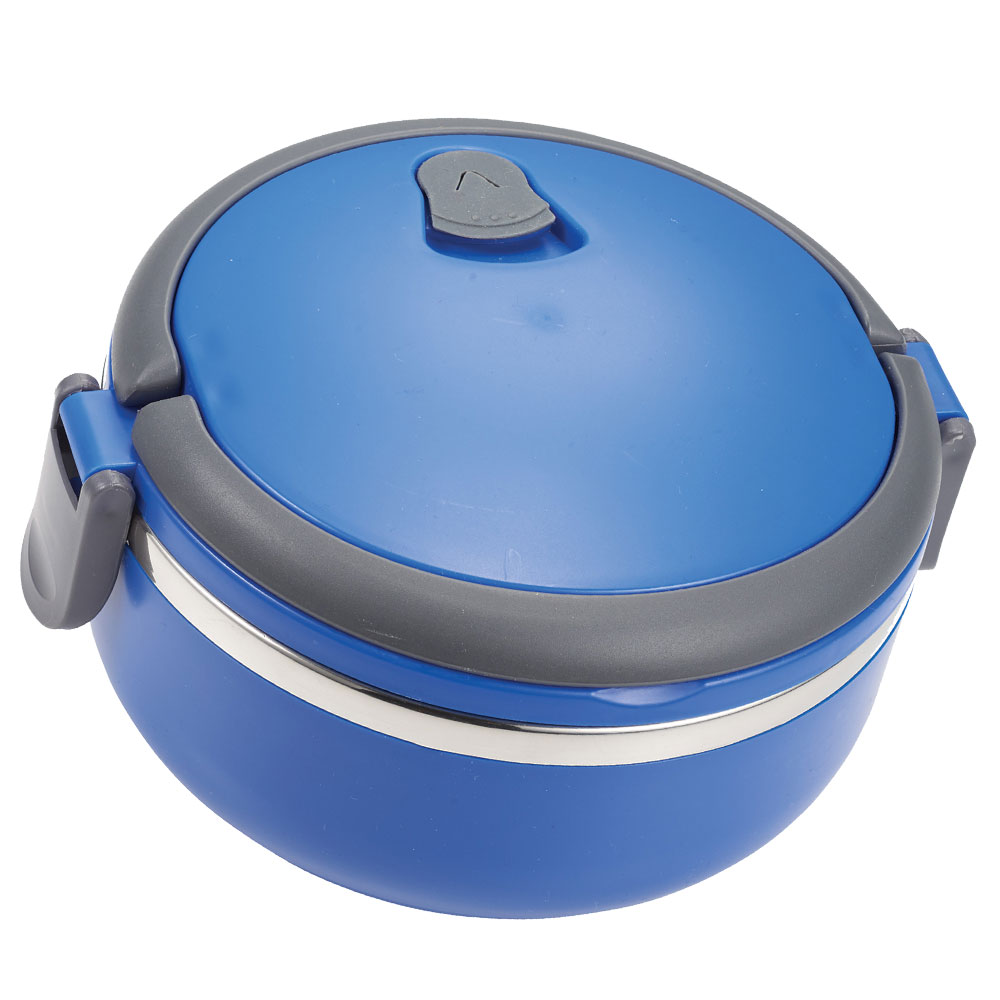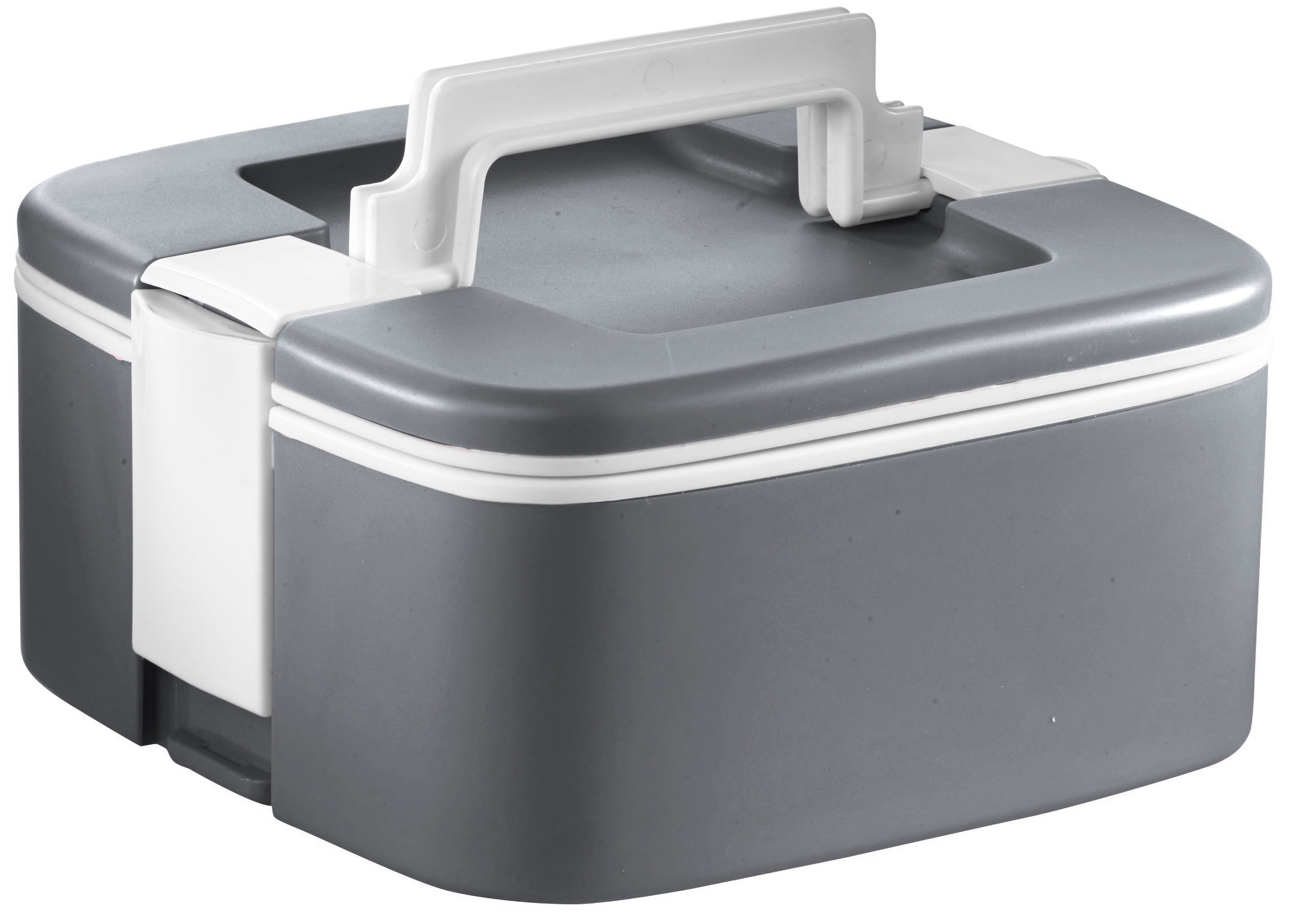Within the realm of culinary adventures, insulated meals containers emerge as indispensable companions, preserving the freshness and temperature of your culinary creations. Whether or not you are a seasoned chef or an enthusiastic residence prepare dinner, these versatile vessels provide a myriad of advantages that improve your meal preparation and storage experiences.
From preserving the heat of hearty soups and stews to sustaining the crispness of salads and sandwiches, insulated meals containers empower you to savor each chunk with the identical delectable high quality as when it was freshly ready.
Advantages of Insulated Meals Containers
Insulated meals containers present quite a few benefits for preserving meals temperature, guaranteeing the freshness and high quality of your meals. These containers successfully keep scorching meals cold and hot meals chilly for prolonged durations, enhancing the general meal expertise.
Vitality Effectivity and Value Financial savings, Insulated meals container
Insulated meals containers contribute to power effectivity and price financial savings by lowering the necessity for reheating or re-cooling meals. They keep the specified temperature of your meals, eliminating the power consumption related to extra heating or cooling processes. This interprets into lowered utility payments and a extra sustainable method to meals storage.
Enhanced Meal Preparation and Storage
Insulated meals containers provide versatility and comfort for meal preparation and storage. They mean you can put together meals forward of time and retailer them on the desired temperature till able to serve. This flexibility simplifies meal planning and saves time throughout busy schedules.
Moreover, these containers are perfect for transporting meals to picnics, potlucks, or different gatherings, guaranteeing your dishes arrive at their vacation spot in optimum situation.
Kinds of Insulated Meals Containers
Insulated meals containers are available varied sorts, every with distinctive options and advantages. Understanding the different sorts may help you select essentially the most appropriate container in your particular wants.
Vacuum-Sealed Insulated Meals Containers
Vacuum-sealed insulated meals containers characteristic a double-walled design with a vacuum between the partitions. This vacuum prevents warmth switch by conduction and convection, making them extremely efficient at sustaining meals temperatures. They’re usually fabricated from chrome steel or plastic and are sturdy and simple to scrub.
Execs:
- Wonderful insulation, sustaining meals temperatures for prolonged durations
- Sturdy and leak-proof
- Simple to scrub and keep
Cons:
- Dearer than different sorts
- Will be cumbersome and heavy
Double-Walled Insulated Meals Containers
Double-walled insulated meals containers have two layers of fabric with an air hole between them. The air hole acts as an insulator, lowering warmth switch. They’re usually fabricated from chrome steel or plastic and are light-weight and moveable.
Execs:
- Good insulation, sustaining meals temperatures for a number of hours
- Light-weight and simple to hold
- Reasonably priced and broadly obtainable
Cons:
- Not as efficient as vacuum-sealed containers
- Will be liable to leaks if not sealed correctly
Foam-Insulated Meals Containers
Foam-insulated meals containers are fabricated from expanded polystyrene (EPS) foam, which is a superb insulator. They’re light-weight, disposable, and cheap.
Execs:
- Light-weight and disposable
- Cheap and available
- Gives some insulation, maintaining meals heat or chilly for brief durations
Cons:
- Not as efficient as vacuum-sealed or double-walled containers
- Not sturdy and could be simply broken
- Not appropriate for long-term meals storage
Suitability of Totally different Kinds of Insulated Meals Containers
The suitability of an insulated meals container will depend on the precise use case. For long-term meals storage and most temperature retention, vacuum-sealed containers are your best option. Double-walled containers are appropriate for shorter durations of meals storage and portability. Foam-insulated containers are perfect for short-term use, corresponding to picnics or fast meals.
Supplies Utilized in Insulated Meals Containers

Insulated meals containers are usually produced from quite a lot of supplies, every with its personal distinctive properties and advantages. The most typical supplies used embody chrome steel, plastic, and glass.
Stainless Metal
Stainless-steel is a sturdy and corrosion-resistant materials that’s usually used within the building of insulated meals containers. It’s simple to scrub and doesn’t retain odors or flavors. Stainless-steel containers are additionally comparatively light-weight and might face up to excessive temperatures.
Plastic
Plastic is a light-weight and cheap materials that’s usually used within the building of insulated meals containers. It’s simple to mould into completely different styles and sizes, making it a flexible materials for quite a lot of purposes. Nevertheless, plastic containers might not be as sturdy as chrome steel or glass, and they are often harder to scrub.
Glass
Glass is a non-porous materials that’s simple to scrub and doesn’t retain odors or flavors. Glass containers are additionally microwave-safe, making them a handy choice for reheating meals. Nevertheless, glass containers are heavier than chrome steel or plastic containers, and they are often extra simply damaged.
Environmental Affect
The environmental affect of insulated meals containers varies relying on the fabric used. Stainless-steel is a recyclable materials, whereas plastic just isn’t. Glass can also be recyclable, however it’s extra energy-intensive to provide than plastic.
Design Options of Insulated Meals Containers
The effectiveness of insulated meals containers largely will depend on their design options. These options work in conjunction to take care of the temperature of the meals inside, guaranteeing it stays scorching or chilly for prolonged durations.
Hermetic Seals
Hermetic seals are essential for stopping warmth or chilly from escaping the container. They create a barrier that minimizes air alternate, lowering warmth loss or achieve. These seals could be achieved by way of tight-fitting lids, gaskets, or O-rings.
Insulation Thickness
The thickness of the insulation materials is a key think about figuring out the container’s insulating capabilities. Thicker insulation gives higher safety in opposition to temperature adjustments, permitting meals to remain on the desired temperature for longer.
Form
The form of the container additionally performs a job in its insulation effectivity. Spherical or oval containers have a smaller floor space relative to their quantity, which reduces warmth switch. This form minimizes the quantity of warmth that may escape or enter the container.
Modern Design Options
Modern design options can additional improve the efficiency of insulated meals containers. These embody:
- Vacuum insulation: Creates a near-perfect vacuum between the interior and outer partitions of the container, considerably lowering warmth switch.
- Reflective lining: A reflective materials contained in the container helps replicate warmth again into the container, enhancing insulation.
- Double-walled building: Gives an additional layer of insulation, growing the container’s effectiveness.
Capability and Measurement Concerns

Selecting the suitable capability and measurement of an insulated meals container is essential for guaranteeing efficient temperature retention and portability. Contemplate the next components:
Capability
The capability of an insulated meals container determines the quantity of meals it might maintain. Elements to contemplate embody:
- Meal measurement:Select a container with a capability that may accommodate your typical meal parts.
- Frequency of use:If you happen to plan to make use of the container each day, decide for a bigger capability to reduce the necessity for frequent refills.
- Cupboard space:Make sure the container matches comfortably in your fridge or lunch bag.
Measurement
The dimensions of an insulated meals container refers to its bodily dimensions. Concerns embody:
- Portability:Select a measurement that’s simple to hold and matches effectively in your bag or backpack.
- Form:Contemplate the form of the container to optimize area utilization in your storage or bag.
- Insulation thickness:Thicker insulation gives higher temperature retention however could improve the general measurement of the container.
As a normal guideline, for a single meal, a capability of 16-24 ounces and a measurement of roughly 7x5x3 inches is really useful. For bigger meals or prolonged use, take into account a capability of 32-48 ounces and a measurement of round 8x6x4 inches.
Care and Upkeep of Insulated Meals Containers
Correct care and upkeep are essential for extending the lifespan and preserving the effectiveness of insulated meals containers. Listed below are some important methods to observe:
Cleansing
Common cleansing is important to stop the buildup of micro organism and odors. Hand-wash insulated meals containers with heat, soapy water and a smooth sponge or material. Keep away from utilizing harsh detergents or abrasive scrubbers that may injury the insulation or exterior.
Rinse completely and air-dry utterly earlier than storing.
Drying
Thorough drying is important to stop moisture from damaging the insulation or inflicting mould progress. After washing, shake off extra water and place the container the wrong way up on a drying rack or clear towel to permit all elements to air-dry utterly.
Don’t retailer whereas nonetheless damp.
Storing
Correct storage protects insulated meals containers from injury and extends their lifespan. Retailer containers in a clear, dry place away from direct daylight or warmth sources. Keep away from storing containers with sharp objects or heavy gadgets that might puncture or dent them.
If the container has a lid, guarantee it’s closed tightly to stop mud or bugs from getting into.
Ideas for Extending Lifespan
Keep away from excessive temperatures
Don’t expose insulated meals containers to excessive warmth or chilly, as this may injury the insulation.
Deal with with care
Deal with insulated meals containers gently to stop dents or cracks that might compromise their insulation.
Examine repeatedly
Periodically examine insulated meals containers for any indicators of injury or put on. If any points are discovered, tackle them promptly to take care of the container’s effectiveness.
Environmental Affect of Insulated Meals Containers

Insulated meals containers have each constructive and damaging environmental impacts. On the one hand, they may help to cut back meals waste by maintaining meals contemporary for longer durations. This could cut back the quantity of meals that leads to landfills, which is a serious supply of methane, a potent greenhouse fuel.
Then again, insulated meals containers are sometimes produced from supplies that aren’t biodegradable or recyclable, which may contribute to air pollution.
Supplies Used
The environmental affect of insulated meals containers varies relying on the supplies used. Some supplies, corresponding to chrome steel, are extra environmentally pleasant than others, corresponding to plastic. Stainless-steel is sturdy and could be recycled, whereas plastic is usually not recyclable and might take lots of of years to decompose.
Manufacturing and Disposal
The manufacturing and disposal of insulated meals containers even have environmental impacts. The mining and processing of uncooked supplies, corresponding to chrome steel and plastic, can pollute the setting. The disposal of insulated meals containers can be problematic, as they usually find yourself in landfills.
Suggestions
There are a number of issues that may be performed to cut back the environmental affect of insulated meals containers. One is to decide on containers produced from environmentally pleasant supplies, corresponding to chrome steel. One other is to correctly eliminate insulated meals containers when they’re not usable.
Lastly, you will need to keep away from overusing insulated meals containers. By following the following pointers, you’ll be able to assist to cut back the environmental affect of insulated meals containers.
Skilled Solutions
What supplies are generally utilized in insulated meals containers?
Insulated meals containers usually make the most of supplies corresponding to chrome steel, plastic, and glass. Every materials provides distinctive properties, together with sturdiness, temperature retention capabilities, and ease of cleansing.
How do insulated meals containers contribute to power effectivity?
Insulated meals containers reduce warmth loss, lowering the power required to take care of the specified temperature of your meals. This power effectivity interprets into value financial savings, notably when storing meals for prolonged durations.
What components ought to I take into account when deciding on the capability and measurement of an insulated meals container?
Contemplate the amount of meals you usually retailer, the length of storage, and the portability necessities. Bigger containers provide better capability however could also be much less moveable, whereas smaller containers are extra compact however could restrict storage capability.

